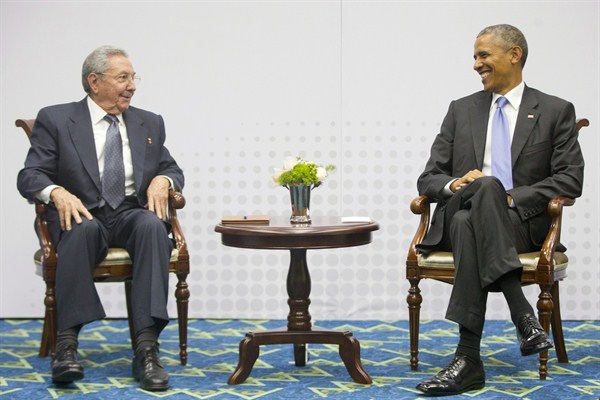On July 20, an honor guard of three Cuban soldiers in full dress uniform raised the island country’s flag over the embassy in Washington for the first time since January 1961. The re-establishment of diplomatic relations concluded “the first stage” of the dialogue between the United States and Cuba, said Foreign Minister Bruno Rodriguez, but a “complex and certainly long process” of negotiations still lay ahead before the two countries would have truly normal relations. “The challenge is huge,” he added, “because there have never been normal relations between the United States of America and Cuba.”
Indeed, myriad issues still divide the two governments, some of which are already under discussion, some of which are not and some of which can only be resolved by the U.S. Congress. Even as negotiations to resume diplomatic relations were underway, the two governments formed working groups to begin dealing with the complex patchwork of issues that Fidel Castro once called “a tangled ball of yarn.”
Working Through the Spectrum of Issues

